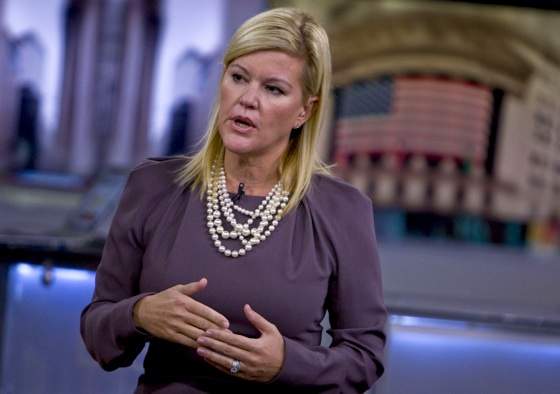Municipal bond investors are trying to unload holdings at the fastest pace in at least 14 years amid increasing mutual fund redemptions and rising U.S. Treasury rates, shortly after analyst Meredith Whitney forecast “hundreds of billions of dollars” in municipal defaults.
Municipal bond investors are trying to unload holdings at the fastest pace in at least 14 years amid increasing mutual fund redemptions and rising U.S. Treasury rates.
Bondholders looked for buyers for about $896 million in municipal securities daily this month through Dec. 22, the most on record, according to a Bloomberg bids-wanted index that dates to Aug. 8, 1996. Sellers sought bids for $783 million on average in March 2008, the second-highest monthly tally, the index shows.
Investors pulled the biggest weekly amount of money from fixed-income funds in two years after signs of an economic recovery pushed the Standard & Poor's 500 Index of stocks to a two-year high Dec. 22. Guy LeBas, chief fixed-income strategist at Janney Montgomery Scott LLC, said selling picked up after Meredith Whitney, the banking analyst, on Dec. 19 forecast “hundreds of billions of dollars” in municipal defaults.
“Many retail investors were expecting big declines in the value of their portfolios because of all the credit problems,” said LeBas, who is based in Philadelphia.
Investors withdrew more than $2.72 billion from municipal- bond mutual funds in the week ended Dec. 15, the fifth straight week of outflows, according to data compiled by Lipper FMI, a Denver-based research company. Investors have pulled $9.12 billion from municipal funds since the week ended Nov. 11.
Mutual fund redemptions lead to bond sales because managers must sell the securities to repay investors. Individual investors make up about 37 percent of the $2.86 trillion muni market, according to Federal Reserve data.
‘Spate' of Defaults
States' fiscal stress may trigger a “spate” of defaults among municipalities, said Whitney, who correctly predicted Citigroup Inc.'s dividend cut in 2008, during a segment on CBS Corp.'s “60 Minutes.”
The daily value of holdings put out for bid exceeded $1 billion on Dec. 21, before falling to $546 million Dec. 22, according to data compiled by Bloomberg.
The average default rate for investment-grade municipal debt evaluated by Moody's Investors Service from 1970 through 2009 was 0.03 percent, compared with 0.97 percent for corporate issues, the New York-based company said in February. General- obligation bonds and debt for essential services such as water and sewers are safer than unrated bonds and securities for not- for-profit hospitals, it said.
Lighter Supply
Yields, which move inversely to prices, have jumped at almost every maturity this month amid the selloff, according to Bloomberg Valuation indexes tracking top-rated tax-exempt debt.
A lighter sales calendar next month will likely meet increased demand as bondholders reinvest Jan. 1 coupon and maturity payments, boosting prices, according to Mark Steffen, who oversees $450 million in munis as chief operating officer at Belle Haven Investments Inc. in White Plains, New York.
“People who were willing to put up with the forced selling and distressed selling will be well-off at the beginning of the year,” LeBas said.
Yields on 10-year Treasuries have jumped about 60 basis points in December, the biggest monthly increase since January 2009, as a selloff of U.S. government debt accelerated after the Fed last month pledged to buy $600 billion in assets to revive the economy. A basis point is 0.01 percentage point.
The iShares S&P National AMT-Free Bond Fund, an exchange- traded fund that tracks the Standard & Poor's municipal-bond index, fell to $99.12 on Dec. 23 from $102.36 on Nov. 30. The price plummeted to $97.30 on Dec. 14, the lowest since Jan. 26, 2009.
Following is a description of a pending sale of U.S. municipal debt:
METROPOLITAN WATER RECLAMATION DISTRICT OF GREATER CHICAGO, a wastewater utility that serves more than 5 million people, plans to sell $500 million in taxable and tax-exempt debt as soon as Jan. 3. The securities are top-ranked by all three major credit-rating companies. JPMorgan Chase & Co. will lead underwriters marketing the securities. (Added Dec. 22)







